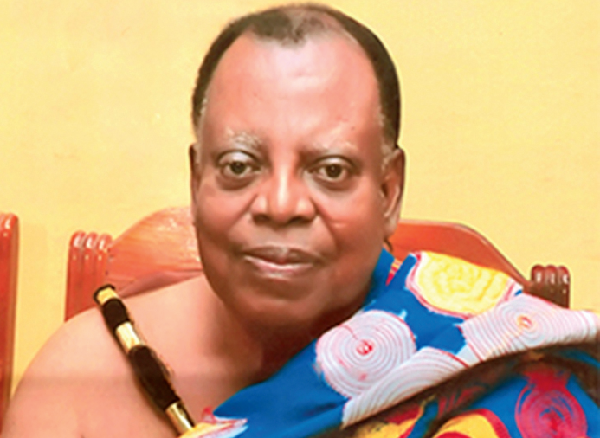
Freedom of religion essential for religious tolerance - SKB Asante
A constitutional lawyer, Nana Dr S.K.B. Asante, has stated that freedom of religion is a prerequisite to religious tolerance.
Advertisement
He emphasised that freedom of religion and religious tolerance were core values not only in constitutional democracies but in pluralistic societies which are undergoing the process of integration and national cohesion.
He, therefore, warned that religious intolerance was a recipe for sectarian conflict and instability.
Nana Dr Asante, who is also the Paramount Chief of Asante Asokore, was delivering the 7th in the series of the S. H. Amissah Memorial lectures at the Wesley Methodist Cathedral in Koforidua in the Eastern Region.
It was on the topic: “The Constitution of Ghana and freedom of religion: Challenges and the way forward.”
He said “Some of you may not be comfortable with departing from your established position of managing your educational institutions, and you may well feel that making a slight concession today may open the door for unwelcomed erosion of your traditional practices. To those who feel that way, my respectful advice is to consider the long-term effect of that posture in our pluralistic society buffeted by radical and extreme sectarian forces.”
Relevant constitutional provisions
According to Nana Dr Asante, although the Constitution did not explicitly mention religious freedom, it was worth noting that Article 21 (b) stipulated that all persons shall have the right to freedom of thought, conscience and belief.
“Admittedly, this clause encompasses freedom of thought, conscience and belief in matters other than religion, but it can hardly be disputed that freedom of conscience and belief may have a religious element and reinforces the concept of religious freedom and tolerance. The more crucial provision, however, is Article 21 (C) which expressly guarantees freedom to practise any religion and to manifest such practice. It is this provision which was specifically mentioned by the Muslim leaders in their presentation to the National Peace Council over alleged violations of the constitutional guarantees of freedom of religion, particularly, in educational institutions,” he added.
In this regard, he said, it must be pointed out that the constitutional law of the United States, for example, sometimes distinguished between freedom to believe and activity undertaken pursuant to religious beliefs.
“While the right to believe was originally accorded absolute protection, an activity undertaken pursuant to religious beliefs or conduct, which corresponds to manifesting under the country’s Constitution, may be appropriately regulated in the public interest. This distinction is somewhat blurred now. It is important to appreciate that the above provisions of the 1992 Constitution guarantee fundamental human rights and freedoms for all, subject to certain qualifications,” he said.
Recommendations
Enumerating a number of constitutional provisions to back his arguments, Nana Dr Asante recommended that since the Constitution prohibited discrimination against Christian and Muslim students, a public educational establishment which did not profess any religious orientation should not practise any discrimination against any religious group in the school, nor should it compel students of one faith to accept another faith.
He, however, said in as much as the issues were more complex than the crude practice of compelling students to worship in another faith, a provision could be made for a Christian and Muslim prayer either simultaneously or on alternate days as was already being done in the country, and should be preserved “as our distinctive contribution to religious tolerance.”



